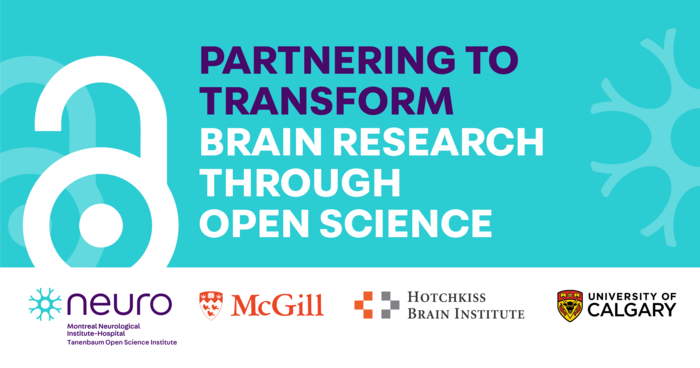Diseases of the brain are among the most complex to understand and difficult to treat. Traditional research practices aren’t always sufficient to produce truly effective and novel treatments for most neurological diseases. An Open Science approach to brain research facilitates wide collaboration and information sharing to accelerate the pace of discovery and bring solutions more quickly to patients with neurological disorders.

Credit: Jean-Paul Acco
Diseases of the brain are among the most complex to understand and difficult to treat. Traditional research practices aren’t always sufficient to produce truly effective and novel treatments for most neurological diseases. An Open Science approach to brain research facilitates wide collaboration and information sharing to accelerate the pace of discovery and bring solutions more quickly to patients with neurological disorders.
The University of Calgary’s Hotchkiss Brain Institute (HBI) is the first to partner with The Tanenbaum Open Science Institute at The Neuro in a commitment to adopting Open Science approaches across its research and innovation efforts. This major endeavour is supported by a $2M commitment from the Tanenbaum Open Science Institute (TOSI) at The Neuro and the Larry & Judy Tanenbaum Family Foundation.
“Having HBI join us enriches the Open Science world,” says Dr. Guy Rouleau, Director of The Neuro and co-founder of the Tanenbaum Open Science Institute. “More minds thinking and working together in Open Science means better results. We hope that our collaboration with HBI will encourage many others to come onboard and join the Open Science movement in the near future.”
HBI, based in UCalgary’s Cumming School of Medicine, is uniquely positioned to move the needle on Open Science for brain and mental health. With members spanning nine faculties, researchers are already participating in Open Science work for Parkinson’s disease and sharing magnetic resonance imaging (MRI) data sets to improve research and diagnostics.
“It’s difficult for people working in isolation to make significant impact,” says Dr. David Park, Director, Hotchkiss Brain Institute, University of Calgary. “We need to work together and collaborate if we’re going to make rapid advances in brain and mental health and, ultimately, improve people’s lives.”
“The history of scientific research shows that when we share evidence and information amongst scholars, we arrive more quickly at effective and applicable health solutions,” Dr. Ed McCauley, President and Vice-Chancellor, University of Calgary. “The ability of HBI scholars to share information with their colleagues around the world enables us to rapidly hone in on answers. We’ll be able to identify solutions that might not otherwise be apparent without this collaboration.”
Philanthropy and collaborative spirit at the core
Canadian sports and business legends, Larry Tanenbaum and Harley Hotchkiss, shared more than a love of hockey. They shared a passion and commitment to advance brain and mental health research – Hotchkiss, through the establishment of UCalgary’s Hotchkiss Brain Institute and Tanenbaum through co-founding the Tanenbaum Open Science Institute at The Neuro. This new partnership brings these titans together, once again, to benefit our global community and grow the momentum for Open Science in Canadian brain research.
Harley and I became friends through our love of hockey and cemented our relationship through our contributions to health care in our respective provinces,” syas Larry Tanenbaum, Co-Founder of the Tanenbaum Open Science Institute at The Neuro; Chairman of Maple Leaf Sports & Entertainment. “Knowing that the Hotchkiss now joins The Neuro in a quest to spread adoption of Open Science principles across our country makes me hopeful and immensely proud. This is the very reason I created the Tanenbaum Open Science Institute at The Neuro.”
The Tanenbaum Open Science Institute was established in 2016 at The Neuro through a $20-million donation by the Larry & Judy Tanenbaum Family Foundation with a goal of leading the development of Open Science within The Neuro and encouraging other Canadian neuroscience research institutes to commit to Open Science. Partnerships like this one with HBI are key to accomplishing, through the power of Open Science, TOSI’s goal of creating a national alliance of open neuroscience.
The HBI and The Neuro strongly believe that Open science, through breaking down barriers and promoting collaboration, will accelerate the development of the diagnostic tools and treatments that patients direly need. They hope many others will join them in this growing new way of doing science.




